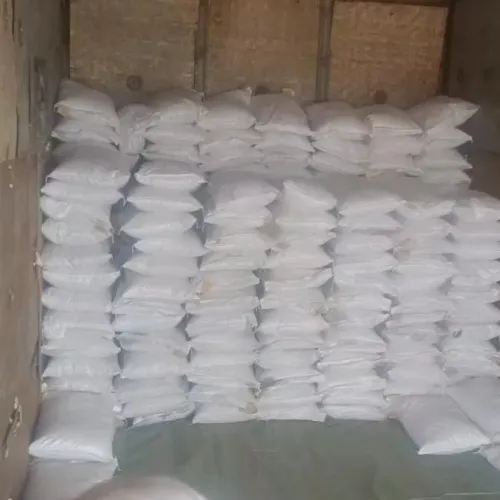Warning: Undefined array key "file" in /home/www/wwwroot/HTML/www.exportstart.com/wp-content/themes/1198/header.php on line 7
Warning: Undefined array key "title" in /home/www/wwwroot/HTML/www.exportstart.com/wp-content/themes/1198/header.php on line 7
Warning: Undefined array key "title" in /home/www/wwwroot/HTML/www.exportstart.com/wp-content/themes/1198/header.php on line 7
- Afrikaans
- Albanian
- Amharic
- Arabic
- Armenian
- Azerbaijani
- Basque
- Belarusian
- Bengali
- Bosnian
- Bulgarian
- Catalan
- Cebuano
- China
- China (Taiwan)
- Corsican
- Croatian
- Czech
- Danish
- Dutch
- English
- Esperanto
- Estonian
- Finnish
- French
- Frisian
- Galician
- Georgian
- German
- Greek
- Gujarati
- Haitian Creole
- hausa
- hawaiian
- Hebrew
- Hindi
- Miao
- Hungarian
- Icelandic
- igbo
- Indonesian
- irish
- Italian
- Japanese
- Javanese
- Kannada
- kazakh
- Khmer
- Rwandese
- Korean
- Kurdish
- Kyrgyz
- Lao
- Latin
- Latvian
- Lithuanian
- Luxembourgish
- Macedonian
- Malgashi
- Malay
- Malayalam
- Maltese
- Maori
- Marathi
- Mongolian
- Myanmar
- Nepali
- Norwegian
- Norwegian
- Occitan
- Pashto
- Persian
- Polish
- Portuguese
- Punjabi
- Romanian
- Russian
- Samoan
- Scottish Gaelic
- Serbian
- Sesotho
- Shona
- Sindhi
- Sinhala
- Slovak
- Slovenian
- Somali
- Spanish
- Sundanese
- Swahili
- Swedish
- Tagalog
- Tajik
- Tamil
- Tatar
- Telugu
- Thai
- Turkish
- Turkmen
- Ukrainian
- Urdu
- Uighur
- Uzbek
- Vietnamese
- Welsh
- Bantu
- Yiddish
- Yoruba
- Zulu
Lùna . 13, 2024 03:46 Back to list
Exploring the Various Types and Uses of Propylene Glycol in Different Industries
Types of Propylene Glycol An Overview
Propylene glycol, a synthetic organic compound produced from petroleum, is a colorless, odorless, and hygroscopic liquid with the molecular formula C3H8O2. It has garnered widespread use across various industries, primarily due to its property as a solvent and its ability to retain moisture. This article explores the different types of propylene glycol and their applications, highlighting the versatility of this compound.
1. Chemical Forms of Propylene Glycol
There are two main types of propylene glycol, which vary based on their purity and physical properties
- Technical Grade Propylene Glycol This form of propylene glycol is primarily used in industrial applications. It is less purified and may contain some impurities or byproducts of the manufacturing process. Technical grade propylene glycol is commonly employed in the production of plastics, antifreeze agents, and as a coolant. Due to its cost-effectiveness and sufficient performance for industrial use, it remains a popular choice in various manufacturing settings.
- USP Grade Propylene Glycol USP (United States Pharmacopeia) grade propylene glycol is a higher purity form, considered safe for human consumption and pharmaceutical applications. It is extensively used in the food, pharmaceutical, and cosmetic industries. Its non-toxic nature allows it to be used as a food additive, humectant, and solvent for flavors and colors in food products. Additionally, it finds application in the production of medications, ointments, and personal care items.
2. Applications Across Industries
Propylene glycol's unique properties make it a valuable compound in numerous fields
types of propylene glycol

- Food Industry As a food additive, propylene glycol is classified as Generally Recognized as Safe (GRAS) by the FDA. It serves primarily as a humectant, helping to retain moisture in baked goods, dairy products, and snacks. It also acts as a solvent for food flavors and colors, enhancing the quality and shelf life of various food items.
- Pharmaceutical Industry In the realm of pharmaceuticals, propylene glycol is used as a carrier for active ingredients in medications, including oral, injectable, and topical formulations. Its ability to dissolve both hydrophilic and lipophilic drugs makes it indispensable in creating effective therapeutic formulations.
- Cosmetic Industry The cosmetic industry also benefits significantly from propylene glycol. It acts as a moisturizer and skin-conditioning agent in creams, lotions, and other personal care products. Furthermore, it helps to stabilize the emulsions found in various cosmetic formulations, ensuring product efficacy and quality.
- Industrial Applications In addition to its uses in food and personal care products, propylene glycol is employed in industrial applications such as de-icing agents, antifreeze, and coolants. Its low toxicity compared to ethylene glycol makes it a preferred option in environments where human exposure is possible, such as in food processing facilities and heating systems.
3. Safety and Environmental Considerations
Propylene glycol is generally regarded as safe for use, with low toxicity levels making it suitable for many agricultural and industrial applications. Unlike its counterpart, ethylene glycol, which is highly toxic to humans and animals, propylene glycol poses minimal health risks when used appropriately. Its biodegradability adds to its appeal, as it does not contribute significantly to environmental pollution.
Conclusion
In conclusion, propylene glycol is a versatile compound with various types that cater to diverse industrial and consumer applications. From food and pharmaceuticals to cosmetics and industrial uses, its unique properties enable it to play a critical role in multiple sectors. Understanding the different grades and applications of propylene glycol helps in recognizing its importance in daily life and the economy, making it an invaluable compound in modern industries.
Latest news
-
2025 European Fine Chemicals Exhibition in Germany
NewsMay.13,2025
-
2025 New York Cosmetics Ingredients Exhibition
NewsMay.07,2025
-
Zibo will host the 2025 International Chemical Expo
NewsApr.27,2025
-
2025 Yokohama Cosmetics Raw Materials and Technology Exhibition
NewsApr.22,2025
-
2025 India Mumbai Fine Chemicals Exhibition
NewsApr.18,2025
-
Nanjing will host the 2025 Yangtze River Delta International Chemical Industry Expo and the National Chemical Industry Conference
NewsApr.15,2025

